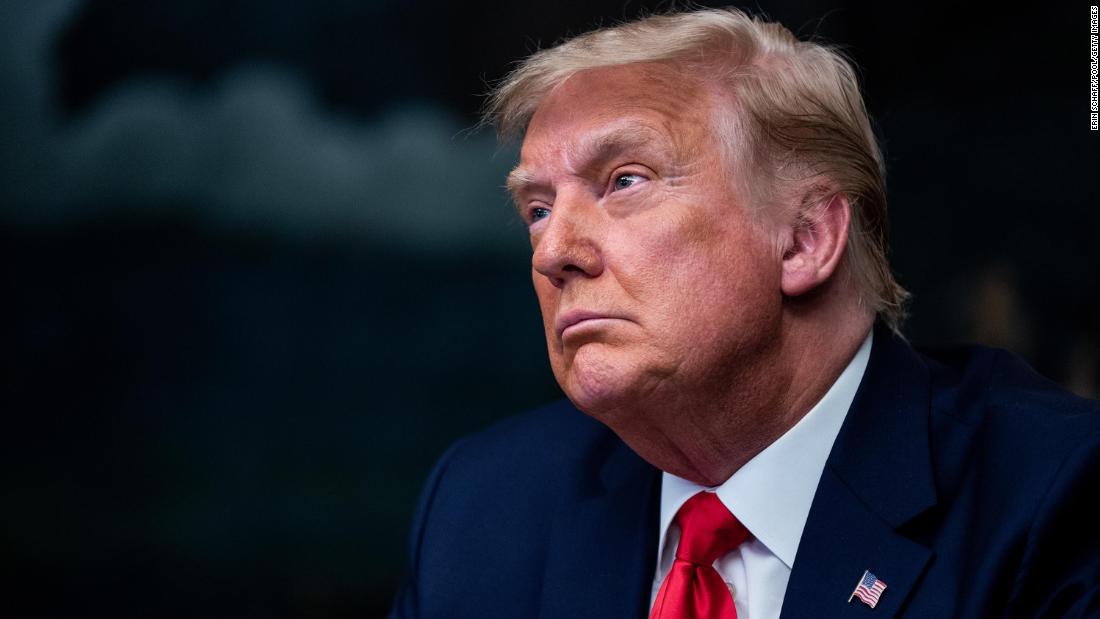Each day brings new reporting about how the President might creatively stretch and bend his expansive pardon power
It’s something you ask of somebody else for something you’ve already done. And that, more or less, is how it’s been viewed in the Constitution.
- Ivanka Trump and her husband, Jared Kushner, who worked for him on his campaigns and in the White House.
- Donald Trump Jr. and Eric Trump, who helped with his campaigns and ran his business and his now-defunct charity.
- Rudy Giuliani, who sought dirt on Joe Biden from foreign governments and has been Trump’s lawyer.
Trump’s already pardoned his former national security adviser Michael Flynn, who pleaded guilty twice to lying to the FBI but had not yet been sentenced, for any and all crimes pertaining to the special counsel investigation.
What the possible self-pardon, the specter of family pardons and the Flynn pardon all share is that they preempt future prosecution.
Why do we have pardons?
Frank Bowman, a constitutional expert at the University of Missouri School of Law, has written a forthcoming study, “Presidential Pardons and the Problem of Impunity,” and traces the history of the pardon power back to the British.
He tells in particular of Charles II, who as King after the Restoration in the 1660s was hard up for cash and having trouble getting money from Parliament. On behalf of the King, the Earl of Danby offered to keep the British out of France’s war with the Dutch in exchange for cash payments to the King. (Talk about a quid pro quo: We’ll stay out of your war. Just pay our King. He might also convert the country to Catholicism.)
Parliament impeached Danby. Charles pardoned him. It was controversial. Years later, Parliament found a way to strike impeachment from the pardon power when William and Mary took over the throne. Today, that same caveat to pardon power is found in the US Constitution. But aside from that, the framers gave the President vast authority.
Precedents for pardons
Up to now, the power of the pardon has been used very sparingly. The largest pardons were President Andrew Johnson’s pardon of ex-Confederates and President Jimmy Carter’s pardon of draft dodgers after Vietnam.
Bowman notes a Supreme Court case, Ex parte Garland, involving ex-Confederates in public positions. The court referenced the nearly unlimited power to pardon: “It extends to every offence known to the law, and may be exercised at any time after its commission, either before legal proceedings are taken, or during their pendency, or after conviction and judgment.”
That phrasing — “at any time after its commission” — from 1866, would suggest Trump could pardon people for things they’ve done that have not yet been prosecuted, as Ford did for Nixon, but not for crimes that haven’t yet been committed. So is it possible new crimes could come to public light? Sure. Would a Trump pardon work to stop the prosecution of them? That’s less clear.
Why would Trump need to pardon?
The fact that the preemptive pardon presumes guilt has been identified as one flaw of the idea, although Trump has so convinced himself and his followers that the “deep state” has been rigging elections and subverting his presidency that he could easily self-justify that any and all charges brought against him or those closest to him would be a hoax.
Bowman agreed that a Biden administration might be hesitant to go after Trump.
“A Biden DOJ is going to be very cautious about indicting a former president, even Trump. As they should be,” Bowman said. “Leaving aside the bad precedent it could create for a cycle of legal retribution after elections, it would be a huge distraction, and convicting a guy who got 70 million votes would be very tough, regardless of the strength of the evidence. And the last thing you want is an indictment and acquittal.”
It’s important, however, to remember that presidential pardons do no good in civil proceedings and state courts, according to Bowman. They also can’t stop Congress, and perhaps more likely than a criminal investigation would be congressional investigations led by House Democrats.
Most of the President’s current legal problems are at the state level in New York, where the Manhattan district attorney, Cyrus Vance, is investigating Trump’s finances, his tax avoidance, his charity and his involvement in hush money payments to women who have alleged affairs with him. But we also don’t know the full extent of Trump’s actions, or of his children’s or Giuliani’s activities.
![]()


